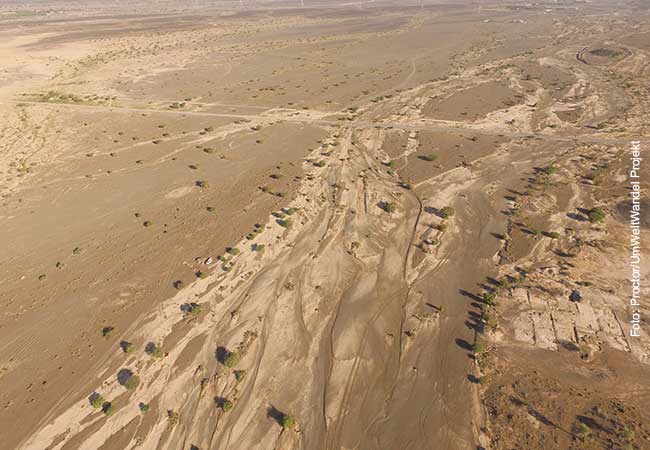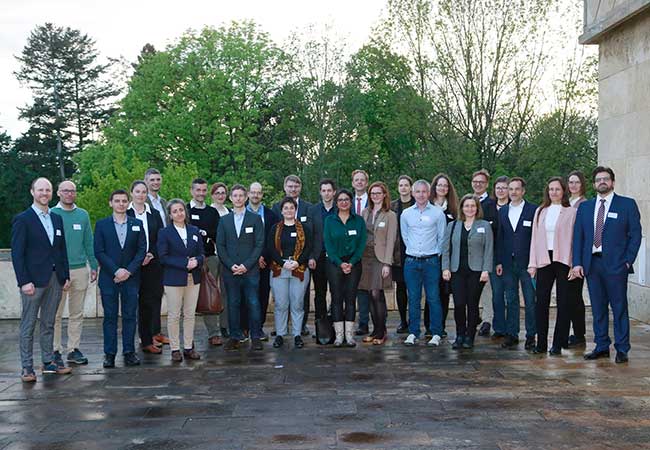Goethe University Frankfurt is applying with four new clusters on the research topics “Confidence in Conflict” (CONTRUST), “Infection and Inflammation” (EMTHERA), “Origin of Heavy Elements” (ELEMENTS) and “Cellular Architectures” (SCALE) for the upcoming round of the German federal and state governments’ Excellence Strategy. The applications combine the competencies and future-oriented ideas of Goethe University with those of colleagues from the strategic Rhine-Main Universities (RMU) Alliance and other non-university partners from the four major non-university research organizations. The Cardio-Pulmonary Institute (CPI) Cluster of Excellence, in existence since 2019, will submit a full proposal directly next year.
Goethe University President Prof. Dr. Enrico Schleiff is looking forward to the Excellence Competition: „We are entering the competition for funding as Clusters of Excellence with four new, outstanding and extremely exciting projects, alongside our existing, unique cluster. The projects, which emanate from all research areas at Goethe University, address burning research issues like how we handle conflicts in our society and create trust in these difficult times. We are also working on a fundamentally new understanding of the structure-function relationship of cells that describes their diverse functions. In addition, we are developing new, knowledge-based approaches to treat diseases of the cardiovascular system and the lungs, or for complex diseases in which our immune system goes off the rails. And we will answer the question of how stardust is formed.“
Schleiff emphasizes the importance of the Rhine-Main Universities Alliance in the research clusters’ conception: „We form an integrated science region in the Rhine-Main area, bringing together Goethe University Frankfurt, Johannes Gutenberg University Mainz and Technical University Darmstadt with numerous first-class non-university institutes and companies specialized in research. Although this science region extends only over a very small area, it possesses an expertise unique in Germany and makes it globally visible. Combining our strengths allows us to proliferate on the Excellence Initiative, and the applications would not have been possible without these partnerships.“
All five clusters constitute supporting pillars of Goethe University’s research profile and were developed with the university’s overall strategy closely in mind. The four new clusters developed draft proposals as part of a quality-driven selection process led by the Executive Board and accompanied by a Goethe University-appointed International Scientific Advisory Board (ISAB). The draft proposals have now been submitted to the German Research Foundation (Deutsche Forschungsgemeinschaft, DFG) and will be reviewed by expert panels in the coming months before the clusters will be allowed to submit full proposals next year. Following a two-stage evaluation process, funding as a Cluster of Excellence will begin in 2026.
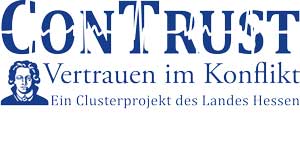
CONTRUST: Trust in Conflict – Political Life under Conditions of Uncertainty. Although conflicts are unavoidable in social contexts, coexistence still works. Trust plays an important role in this respect. It provides us with the certainty that disputes will not escalate, that the respective counterpart will abide by rules, that institutions will safeguard us against transgressions, and that the social world as a whole is so stable that we can meaningfully orient our actions within it. CONTRUST researchers are investigating how this trust is formed and where its origins lie. Prof. Luciano Rezzolla, spokesperson of the ELEMENTS cluster, wishes his colleagues in CONTRUST every success in the competition: „How trust can be maintained or created in conflict is a fundamental question of our multifaceted societies and political systems. I am pleased that some of the most brilliant scholars in this research field will find answers to these questions within CONTRUST.“
Project partners:
Goethe University Frankfurt (applicant)
Peace Research Institute Frankfurt (PRIF)
Website: https://contrust.uni-frankfurt.de/

EMTHERA: Emerging Therapeutics. Infectious and inflammatory diseases and immune system disorders affecting the entire human body constitute some of the greatest medical challenges to global health. Since the processes are not well understood scientifically, a large number of treatments fail. EMTHERA is looking for new approaches to study these diseases and develop novel therapies. To this end, the scientists are focusing on mRNA-based delivery systems, agents that specifically degrade disease-relevant proteins, as well as computational and nanotechnological applications. Prof. Inga Hänelt, SCALE cluster spokesperson, emphasizes EMTHERA’s importance as a translational cluster: „EMTHERA is a collaboration within the Rhine-Main Universities Alliance and another lighthouse project that closely links basic research into the molecular relationships of disease development with the development of novel therapies.“
Project partners:
Goethe University Frankfurt (applicant)
Johannes Gutenberg University Mainz (additional applicant)
Fraunhofer Institute for Translational Medicine and Pharmacology (ITMP), Frankfurt
Helmholtz Institute for Translational Oncology (HI-TRON), Mainz
Institute of Molecular Biology (IMB), Mainz
Max Planck Institute for Polymer Research, Mainz
Max Planck Institute of Biophysics, Frankfurt
Website: https://www.emthera.de/
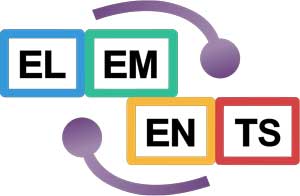
ELEMENTS: Exploring the Universe from Microscopic to Macroscopic Scales. Our world is made up of different types of atoms, the elements. Whether we are talking about the much lighter hydrogen or iron, these elements are formed in stars like our Sun. By linking the microscopic scales of elementary particles to the macroscopic scales of astrophysical objects such as neutron stars, scientists at ELEMENTS are investigating how the much rarer, heavier elements, such as gold or platinum, are formed. Prof. Vinzenz Hediger, spokesperson of the CONTRUST cluster, is convinced: „The flagship project ELEMENTS, a collaboration within the Rhine-Main Universities Alliance with TU Darmstadt, closes the gap between experiments, observations and theory, and will significantly expand our understanding of matter under extreme conditions.“
Project partners:
Goethe University Frankfurt (applicant)
TU Darmstadt (other applicant)
GSI Helmholtzzentrum für Schwerionenforschung, Darmstadt
Frankfurt Institute for Advanced Studies (FIAS)
Max Planck Institute for Radio Astronomy, Bonn
Website: https://elements.science/
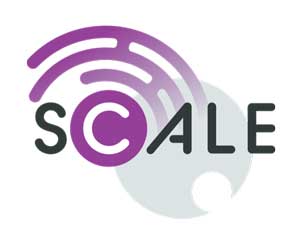
SCALE: Subcellular Architectures of Life. Cells are composed of billions of molecules, organized from single molecules to large molecular complexes to organelles. While the functions of many individual molecules are known, in many cases it remains unclear how the architecture inside a cell is formed, functions and how the parts interact. To uncover the cell’s self-organization principles, SCALE scientists are creating a spatially as well as temporally highly resolved simulation of the cell to better understand how cells really function and how their various „machines“ work together. Prof. Ivan Đikić, spokesperson for the EMTHERA cluster, highlights: „The cutting-edge technologies that our SCALE colleagues are constantly developing, combined with their outstanding scientific approach, will enable an all-atom simulation of large cell segments with long-term predictive power. This will take our understanding of the cellular structure-function relationship to a new level and significantly advance molecular cell research.“
Project partners:
Goethe University Frankfurt (applicant)
Max Planck Institute of Biophysics, Frankfurt
Max Planck Institute for Brain Research, Frankfurt
Frankfurt Institute for Advanced Studies (FIAS)
Max Planck Institute of Molecular Cell Biology and Genetics, Dresden
Saarland University, Homburg
Website: https://scale-frankfurt.org/
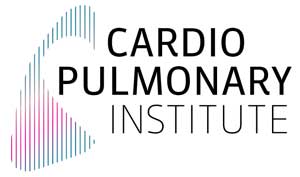
CPI: Cardio-Pulmonary Institute. Diseases of the cardiovascular system are often accompanied by lung diseases and are one of the leading causes of death worldwide. The Cluster of Excellence aims to understand the molecular biological processes underlying the functioning of these organs and their failure in disease. To this end, scientists in the cross-university CPI develop model systems ranging from cell cultures to animal models, and combine the results with examination data from patients to find new therapeutic approaches. The cluster first received funding as the Cardio-Pulmonary System Excellence Cluster from 2006 to 2018, and in 2019 succeeded again as the Cardio-Pulmonary Institute Excellence Cluster.
Project partners:
Goethe University Frankfurt and
Justus Liebig University Giessen (joint applicants).
Max Planck Institute for Heart and Lung Research, Bad Nauheim
University Medical Center Göttingen
Current funding as a Cluster of Excellence: 2019 – 2025 (€45 million)
Website: https://www.cpi-online.de/




